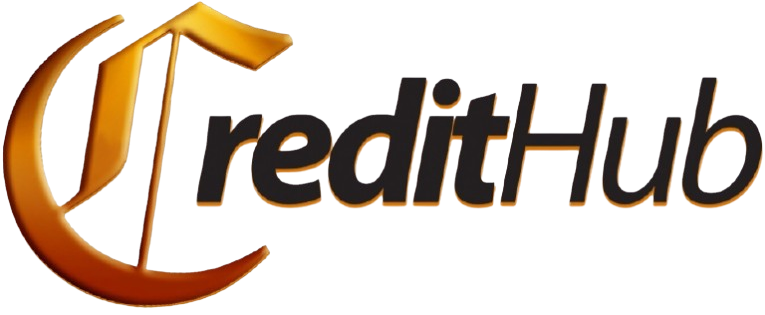With the contemporary lifestyle, closely in relation with the numerous financial institutions providing tempting offers, not everyone is debt-free. That is why we highlight the hacks to clear off your debts quick and effectively. Each one of us would have come across some kind of debts, be it education loans, personal loan, home loans, household debts, credit and debit card debts, the list is endless. But here we talk particularly about the household debts in Singapore. The statistics have shown that Singaporeans have one of the highest household debts in the region. This debt averages to at least S$55,112 per capita and the trend is ever increasing. If this is left uncontrolled and people are not educated about how to handle these issues, it might lead to a major problem for the society, both financially and mentally.
What exactly comprises the household debt? It is defined as the total amount of money all the members of the family owe the financial institutions including the consumer debt, car loans, payday loans and mortgage loans. People are left with no choice than subduing to these loans because of the increasing market price of all the amenities. Everything has become a luxury. Amidst all this, the financial institutions are making their heaven homes with the huge interests.
The problem is known, but we need to educate people about the solution using the hacks to clear off your debts quick and effectively. We need to profess them why is important to reduce the debts and pay them regularly, to avoid the consequences of lifetime mortgage.
Here are a few hacks to clear your debts fast and effectively. There are many doubts triggering our busy brains but we don’t find an appropriate answer to things like, how should I start paying? Which debt should I clear first? And a lot more. Let us go through these things bit by bit and find solutions.
Which debt to clear first? Small or big? The answer to this question lies in the two systems followed, but before that, for any method to be followed you need to make a list of your debts in an increasing or decreasing order.
The first system is the debt-snowball method. This method is represented by a tiny snowball, which as it rolls down increases in size, becomes huge and gains momentum. In this theory, it is suggested that you list all your debts in increasing order, ignoring the interests, and start by paying off the smallest dent in the list. You can do this by saving some part of your monthly income separately, just for paying loans. From this part, you pay a little amount to all categories, and whatever is left behind, you dump in the debt with the least amount. In this way, you might be able to clear that one small thing.
The benefit lies in the fact that when you clear off anyone mortgage quickly and easily, you feel motivated to keep doing and get a stress free life. The only thing that needs to be monitored in this method is your discipline. You need to control yourself on not spending the extra bucks you are left it and use it only for debt payment. Not a very difficult task, but many people find it an obstacle to keep a control on their pocket. If that’s the case you will never be able to pay debts until you learn control.
The second method is the Debt Avalanche Method or the Stack Method. In this method, you list the debts according to the interests in decreasing order and start off by paying the highest debt. Here you don’t have to pay for each but instead just focus on getting rid of the highest debt as soon as possible. After the first is over, you move on to the second one and so on until you empty the list, and hurray! You are done. As this method is based on interest rates, it reduces the total amount you need to pay when you start paying them sooner. Financially this method makes sense, but practically it requires double the discipline and control.
While learning these things about the loan, you must also know the difference between the good debt and the bad debt. A good debt is the one which benefits you in the long run as its value will increase with time. An example is the education loan. Here you pay for now, but you are assured of paying back once you start earning. On the other side, a bad debt is something whose value decreases with time. For example, credit card and automobile loans will never increase your financial status and hence are harmful. The formula is to clear the bad debts first followed by the good ones.
Here there are a few hacks for your bad debts. The Debt consolidation scheme is available for you to look forward to. Through this scheme, you get to consolidate debts from all financial institutions into just one bank to reduce your monthly debt payment obligations. Many institutions like Citibank, UOB etc. offer this, but they the following criteria- the person should be living or a citizen of Singapore, his/her income should be in between S$20,000 and S$120,000 and have an interest-bearing unsecured debt on all credit cards exceeding twelve times of your monthly income. The Debt Management Program guides you through your efforts to pay the debts regularly to avoid bankruptcy. They mainly work on your budget and manage it well so that you regularly leave some amounts to pay the loans. The Debt Repayment scheme benefits both the debtors and the creditors and it is required for you to pay the debts in the given five years tenure without fail.
Besides these schemes, few other tips might be helpful. First, make an emergency savings account. This will be there for you when your expenses suddenly shoot up and you pay for this and not take a loan instead. Neither do you reduce the loan payment you are bound to do? Emergencies are inevitable, so it is better to be prepared. Plan your budget and cut down on the superfluous expenses. This will help you pay off fast and effectively. Always make sure that you pay the minimum payments on your loans. In case you are being charged high-interest rates, then transfer your balances. This will help you cut down on the interest rate. But you have to make sure that you are paying the minimum payable amount and also you are sure that you can pay off the balance before the introductory interest rates expire. Trying to increase your income so that you can pay fast is another way but it’s a difficult task and not everyone can manage it. Make sure you pay the most painful debts first. Also, try to pay the down debts and invest at the same time to save you from the crisis.
All these are your gateway to solutions. But what lies at the root is the addition to the debts. Stop adding to your debts. If you learn to do this, you would have attained a good amount of discipline and confidence that are the most important things in order to make up for the dues. Worrying about the debts is not at all a solution. Only working can help you out. So be vigilant and save the right way to pave your way through these obstacles and you must reward yourself once you are debt-free!

